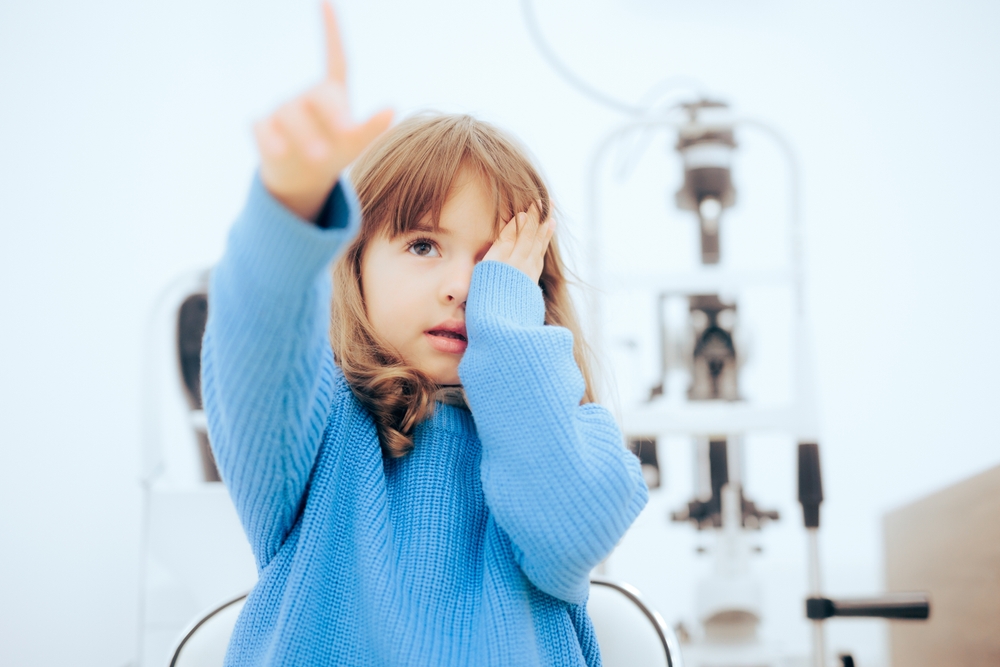
Vision plays a pivotal role in the development and learning process of a child. It is through their eyes that children understand and perceive the world around them. Good eyesight is not only crucial for academic performance but also for overall well-being. Your child's eyes are constantly developing, especially during the early years, and any disruptions in this process can lead to long-term issues.
Common Eye Conditions in Children
When discussing common eye conditions in children, it's important to familiarize yourself with the most frequent issues. Refractive errors, such as myopia, hyperopia, and astigmatism, can lead to blurry vision at various distances. These are often hereditary and can be corrected with glasses or contact lenses.
Amblyopia, known as lazy eye, occurs when one eye is weaker than the other, and the brain favors the stronger eye. This can lead to the weaker eye becoming even less functional over time if left untreated.
Another condition to be aware of is strabismus, where the eyes do not align properly and may look in different directions. This can affect depth perception and cause double vision.
Each of these conditions can have a significant impact on a child's vision and quality of life. Recognizing them early is vital to providing the appropriate treatment and support. Regular eye exams can help detect these conditions even before symptoms become apparent to parents or teachers.
Recognizing the Signs and Symptoms of Eye Problems in Children
Identifying the signs and symptoms of eye problems in your child is crucial. Frequent squinting, for instance, may indicate that your child is struggling to see clearly. You might also notice them tilting their head or covering one eye, which can be a sign of trying to improve clarity or focus. If your child sits too close to the television or holds books and devices unusually close, this could point to a vision problem.
Complaints of headaches or eye strain, particularly after reading or other close-up work, can also be a red flag for eye issues. A sudden drop in academic performance or avoidance of reading and other visually intensive tasks can suggest that your child is having difficulty seeing the material. Additionally, if your child has difficulty with eye-hand coordination in sports or other activities, it could be related to a vision problem.
Behavioral changes, such as increased irritability or short attention spans, may also be a reaction to the frustration of not seeing well. Be aware of any physical signs too, such as redness, tearing, or rubbing of the eyes, as these can be symptoms of eye strain or infection.
When Should Your Child Get an Eye Exam?
Knowing when to schedule an eye exam for your child is key to maintaining their ocular health. The American Optometric Association recommends that children have their first comprehensive eye exam at six months of age. Another exam should be conducted at age three, and again before they start school, typically at the age of 5 or 6. For school-aged children, it's prudent to have their vision checked annually, as growth spurts can change vision.
Beyond these general guidelines, you should also seek an eye exam if you notice any signs and symptoms of vision issues. Additionally, if there's a family history of eye problems, or if your child has suffered an eye injury, don't delay in making an appointment with an eye care professional.
Even if your child does not display any symptoms, regular eye exams are important. Many eye conditions do not have obvious symptoms in the early stages but can be detected during a comprehensive eye exam. Early detection is critical in treating and managing eye conditions effectively, minimizing the risk of long-term damage.
Maintaining Your Child’s Optimal Vision and Eye Health
Maintaining your child's eye health is an ongoing process that requires attention and care. Remember that children rely heavily on their vision for learning and development. Being aware of the common eye conditions in children and recognizing the signs and symptoms early can make a significant difference in your child's life.
If you suspect that your child may be experiencing vision problems, or if it's time for their routine eye exam, visit Drs. Farkas, Kassalow, Resnick & Associates at our office in Manhattan, New York. Please call (212) 355-5145 to schedule an appointment today.









